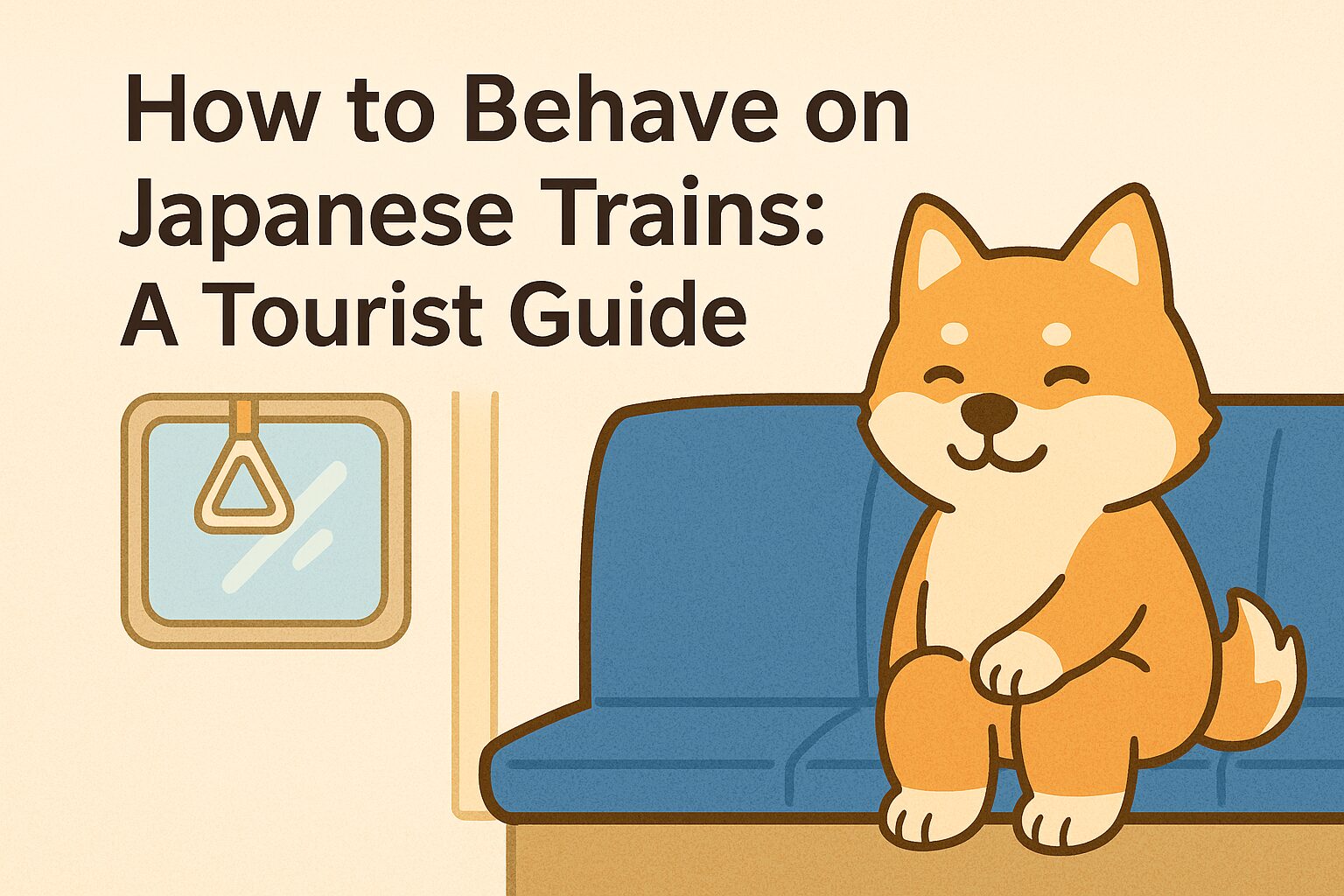Introduction – Why Train Manners Matter in Japan
Quiet, Clean, and Efficient: Japan’s Rail Culture
Japan’s trains are world-renowned for their punctuality, cleanliness, and peaceful atmosphere. Whether you’re commuting through Tokyo or riding a scenic line through the countryside, the train environment reflects Japan’s deep cultural emphasis on public harmony. Respecting train manners in Japan isn’t just polite—it’s expected.
What Tourists Need to Know Before Boarding
If you’re visiting Japan for the first time, it’s important to be aware of local customs on public transport. Train manners in Japan are often unspoken but universally followed. Understanding and following these simple rules helps ensure a smoother and more respectful travel experience.
Essential Train Manners in Japan
No Talking on Phones
Phone conversations are considered disruptive. Always set your phone to silent mode (“manner mode”) and avoid speaking on the phone while on the train.
Keep Volume Low on Music and Conversations
If you’re listening to music, use headphones and keep the volume low enough so others can’t hear it. Speak quietly if chatting with a friend—but avoid conversations during rush hour.
Priority Seats – Respect the Signs
Trains have clearly marked priority seats for the elderly, pregnant women, people with disabilities, and passengers with infants. Even if they’re unoccupied, give them up if someone in need boards.
Eating and Drinking: Yes or No?
On local commuter trains, eating is generally discouraged. On long-distance trains like the Shinkansen, however, it’s common to enjoy a bento. Use your judgment and follow the behavior of nearby passengers.
Mind Your Backpack and Luggage
Backpacks should be worn on your front or placed on the overhead rack or floor to avoid bumping others—especially during crowded hours. Keep your luggage out of the aisles.
How to Line Up and Board Properly
Stand Behind the Line
At station platforms, there are marked lines or arrows showing where to line up. Stand behind them in an orderly fashion and avoid blocking doors.
Wait for Passengers to Exit First
Always let people off the train before boarding. This keeps the flow smooth and prevents congestion.
Be Quick and Calm When Entering
Once it’s your turn, step on quickly and move inside to avoid blocking the doorway. Don’t linger near the entrance unless necessary.
Inside the Train – Dos and Don’ts
Don’t Sit with Legs Wide Open
“Sitting wide” or “manspreading” is seen as inconsiderate. Keep your knees together and take up only your fair share of space.
Avoid Loud Talking or Laughing
Even when traveling with friends, maintain a quiet tone. Laughter and loud voices can disturb other passengers who may be resting or commuting to work.
Don’t Hog Seats with Bags
Seats are for people. Place your bag on your lap or the overhead rack, not beside you. This small courtesy ensures more people can sit comfortably.
Stay Still and Mind Others During Rush Hour
Trains can get extremely packed during rush hours. In these moments, stand still, avoid unnecessary movement, and try not to use your phone.
What to Do If You Make a Mistake
Simple Apologies Go a Long Way
If you accidentally bump into someone or break a rule, a polite “sumimasen” (excuse me/sorry) or a small bow is usually enough. Japanese people are understanding of tourists who try.
Learn from Locals Around You
Observe how other passengers behave. Imitating locals is one of the easiest ways to adapt and understand proper train manners in Japan.
Conclusion – Respect Makes Travel Better
By following train manners in Japan, travelers not only avoid awkward situations but also gain a deeper appreciation of the country’s respectful culture. Small efforts—like turning off your ringtone or giving up a seat—make a big difference.
Ready to explore more?
👉 Check out our other guides on How to Use Suica & PASMO and The History of Suica & PASMO: How Japan’s Transit Cards Revolutionized Travel.
For more tips on Japanese culture and travel, visit the Japan National Tourism Organization (JNTO).
Blend in, be kind, and enjoy the ride!


コメント